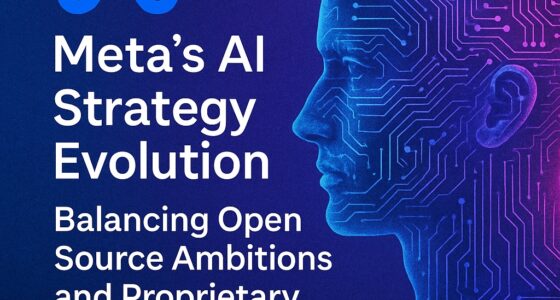Executive Summary – The Myth vs. Reality of Entrepreneurship
Stories about founders raising billions after dropping out of college create a myth‑vs‑reality gap. Emily Foster’s Startup Sofa article warns that the glamorous narrative of entrepreneurship overlooks the hidden costs that most founders face. Reality shows that around 90 % of startups failupsilonit.com and 70 % of tech startups collapse within five yearsembroker.com. The media’s focus on unicorns and overnight success creates a survivorship bias that leaves new founders unprepared for the financial, psychological, relational and health tolls that accompany building a company. This briefing summarises those hidden costs and answers key questions raised by Foster’s article.
The Myth vs. Reality Gap: Beyond the Highlight Reel
Myth: Social media and press outlets showcase the highlight reel – venture‑backed valuations, glitzy launches and founders ringing the NYSE bell – implying that startups are glamorous, fast and almost guaranteed to succeed. Headlines such as “Former college dropout builds billion‑dollar empire in two years” fuel the illusion.
Reality: The statistics tell a harsher story. Around 90 % of startups do not make itupsilonit.com, and most failures happen within the first five yearsembroker.com. This gap breeds profound isolation: founders see only success stories and therefore believe they are uniquely failing. The pressure to post upbeat updates, even when dealing with cash‑flow crises or layoffs, creates a split between public persona and private struggle. In an Endeavor Brazil study, 70 % of entrepreneurs reported feeling lonely during their journeyendeavor.org – a stark contrast to the celebratory images on LinkedIn or Instagram. Such disconnects contribute to entrepreneurial depression and imposter syndrome, as discussed later.
The Financial Quicksand: Beyond the Funding Headline
Fundraising is hard and psychologically taxing. Pandora’s founder Tim Westergren reportedly pitched to more than 300 venture capitalists before securing meaningful funding and spent two and a half years completely brokebusinessinsider.commedium.com. Paul Graham reminds founders that convincing investors to part with money is intrinsically hard and distracts from building the productpaulgraham.com. Every rejection feels personal, and many founders hear dozens of “no” responses before a single “yes.”
Hidden expenses eat capital. Startups face a catch‑22: they need traction to raise funds, but traction requires capital. Beyond salaries, founders must pay incorporation fees, legal compliance, cloud infrastructure and marketing. Technical startups are particularly vulnerable as server and bandwidth costs scale with usagemedium.com. These outlays often force founders to max out credit cards or sell personal assets. A survey cited by Business News Daily found that 13 % of business owners rely on credit cards for startup funding and warns that mixing personal and company finances can damage credit scores and leave founders personally liable if the business failsbusinessnewsdaily.combusinessnewsdaily.com. Friends and family funding is common – Silicon Valley Bank’s 2024 report noted that 38 % of startups rely on friends and family capitalsvb.com – but such arrangements carry their own emotional weight.
Personal financial sacrifice is routine. Founders frequently stop paying themselves to make payroll. Some borrow from family, sell stocks or jewelry, or live on ramen to extend their runway. Many startups operate at a loss for years; the sobering reality is that most founders end up financially worse off than if they had remained in corporate jobsembroker.com.
The Rejection Addiction: The Psychological Scars of “No”
Fundraising and sales bring a constant barrage of rejection. Each “no” feels like a personal indictment, even when rationally it is a business decision. Founders encounter ghost investors, “maybe later” customers and advisors who disappear. This leads to an impossible paradox: entrepreneurs must develop thick skin to survive rejection yet remain sensitive enough to listen to constructive feedback. A founder pitching 300 times before success (as Westergren did) illustrates how perseverance is essential but psychologically drainingbusinessinsider.com. Over time, some founders become addicted to seeking validation, constantly pitching in search of a yes rather than improving their product. Others develop learned helplessness, paralysed by anticipated rejection.
The Imposter Syndrome Spiral: The Weight of Unmet Expectations
Imposter syndrome is pervasive in the startup world. Founders are expected to excel at product design, marketing, finance, hiring and leadership, even when they are novices in many of these domains. A UK study cited by Feel the Boot found that 85 % of professionals feel inadequate at work and only 25 % understand that they are experiencing impostor syndromefeeltheboot.com; the blog suggests entrepreneurs are especially vulnerable because they compare themselves against outlier successesfeeltheboot.com. Survey data from 2024 supports this: an “Emotional Wellbeing of Entrepreneurs” survey found that imposter syndrome affects 31 % of entrepreneursstoryboard18.com, while Founder Reports’ international survey showed that 31.7 % of entrepreneurs experience imposter syndromefounderreports.com. Social media highlight reels magnify these feelings, leading to over‑preparation, analysis paralysis and missed opportunities.
The Loneliness at the Top: The Isolation of Responsibility
Entrepreneurship isolates founders even when surrounded by a team. Responsibility for every strategic decision – from hiring to layoffs – stops at the founder’s desk. Most employees can find another job if things go wrong; investors have diversified portfolios, but the founder’s identity and financial security are tied entirely to the venture. This isolation is widely recognised: the Endeavor Brazil report found that 70 % of entrepreneurs feel lonely throughout their journeyendeavor.org, while Founder Reports’ 2025 survey noted that 26.9 % of entrepreneurs experience loneliness or isolationfounderreports.com. Without mentors or peers who understand their challenges, founders struggle to share fears about making payroll or losing customers. As companies grow, fewer people can relate to the founder’s realities, intensifying the lonelinessforbes.com.
Relationships in the Crossfire: The Personal Cost of Sacrifice
Time poverty and emotional unavailability devour relationships. Startup crises interrupt vacations, family dinners and birthdays; exceptions become the rule. Major life decisions – buying a home, having children or even adopting a pet – are postponed because of financial uncertainty. Romantic relationships often suffer from stress and postponed goals. Friends drift away as social events become networking opportunities rather than personal connections. Founders experience a guilt cycle: guilt for working when with loved ones and guilt for not working when taking time off. Family law experts note that divorce rates among entrepreneurs are higher than in the general population (43–48 %), largely due to stress, financial strain and neglect of spouses.
The Health Tax: The Body as Casualty
Chronic stress and the “hustle” culture take a serious toll on both mental and physical health. Research summarised by StartHawk highlights several risks:
- Elevated mental‑health risks: Depression rates among entrepreneurs are nearly double the general population (30 % versus 16.6 %)starthawk.io, and survey results show 50.2 % of entrepreneurs struggle with anxietyfounderreports.com. Burnout affects about 34.4 %founderreports.com.
- Sleep deprivation and cognitive decline: Around 60 % of adults report insufficient sleep, which impairs focus, creativity and decision‑makingstarthawk.io. Sleep‑deprived people take longer to complete tasks and are more likely to make impulsive decisionsstarthawk.io.
- Physical health risks: Long work hours and chronic stress are associated with a 40 % higher risk of heart disease and contribute to weakened immunity, increased diabetes risk and metabolic disruptionsstarthawk.io. The startup lifestyle often leads to irregular meals, sedentary habits and heavy caffeine or alcohol use.
The combination of mental and physical strain can lead to permanent health damage. Many founders put off medical appointments because they view them as “time theft,” allowing minor issues to become major problems.
Decision Fatigue Prison: The Cognitive Cost
Founders must make dozens of decisions daily – from product design to hiring to marketing channels – and each decision draws from a finite pool of cognitive resources. The Startups Magazine article on decision fatigue explains that the prefrontal cortex has limited energy; as decisions accumulate, the quality of subsequent choices declines, leading to defaulting to safe options, procrastination or impulsive behaviourstartupsmagazine.co.uk. A famous study on judges found they were more likely to grant parole early in the day; as cognitive resources were depleted, the probability of a favourable decision dropped sharplystartupsmagazine.co.uk. Similarly, founders often make thoughtful decisions in the morning but resort to expedient choices by afternoon. Decision fatigue bleeds into personal life, making even simple choices like dinner overwhelming.
Living with Constant Uncertainty
Entrepreneurship rewires one’s reality. Unlike salaried employees, founders have no safety net – no guaranteed paycheck, severance or unemployment benefits. The company’s survival is uncertain, making personal planning nearly impossible. This uncertainty triggers emotional roller‑coasters; small wins elate, minor setbacks devastate. Sleep suffers as the brain repeatedly replays worst‑case scenarios. Long‑term exposure to uncertainty can contribute to anxiety disorders and a distorted relationship with money, where wild income fluctuations make healthy financial habits difficult.
The Weight of Other People’s Dreams
Founders carry the heavy burden of other people’s livelihoods. Decisions about hiring and layoffs determine whether employees can afford groceries and healthcare. The guilt of asking employees to accept below‑market salaries in exchange for equity that may never materialise is palpable. Layoffs are a special kind of psychological trauma; as one founder admitted, after a layoff he realised he had “effectively blown a million dollars paying people to pretend we were a big company.” Even after a startup closes, founders often feel responsible for former employees’ careers and continue to support them with references and introductions.
The Brutal Truth: Is It Worth It?
Statistics show that startup success rates hover around 10 %, meaning nine out of ten founders will not achieve the outcomes glorified in headlinesupsilonit.com. Entrepreneurship doesn’t just risk money or career; it rewrites personalities, relationships and health in ways that cannot be reversed. Most startup advice comes from survivors who are statistical outliers; their guidance, while valuable, reflects as much luck as skillembroker.com. Recognising survivorship bias helps prospective founders make informed choices.
Conclusion – A Call for Preparedness
Acknowledging the hidden costs of entrepreneurship is not meant to discourage people from starting companies. Rather, it prepares them for reality. Understanding the myth‑vs‑reality gap allows aspiring founders to seek mentors, build support networks, budget conservatively and prioritise health. Financial planning should include realistic runway calculations and contingency funding; relying solely on venture capital headlines is dangerous. Psychological preparedness means expecting rejection, imposter syndrome, loneliness and decision fatigue, and developing coping mechanisms such as peer support, therapy, mindfulness and delegation. Relational and health awareness encourages founders to protect relationships, maintain self‑care routines and avoid glorifying burnout. By entering the startup world with eyes wide open, entrepreneurs can make informed decisions about whether the potential rewards outweigh the profound and often permanent sacrifices involved.









